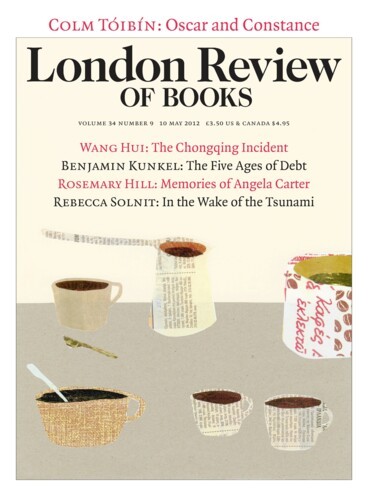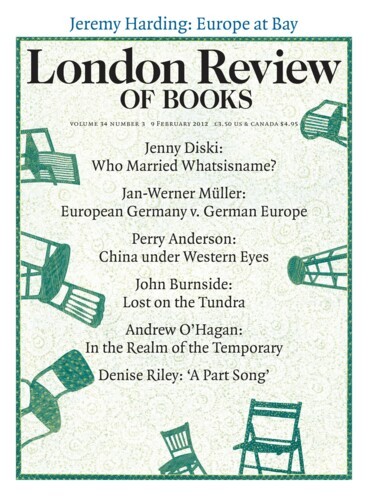There are the books you like, and the books you can recommend, and the books around which you can muster arguments. And then there are the books from which you can get no aesthetic distance at all. Often they’re books about childhood, or about something or somewhere you knew as a child. They can also be books about books. Among Others by Jo Walton, is one such book for me, and not for me alone: last week it picked up the British Fantasy Award, having already won the Nebula and the Hugo for the year's best science fiction novel. The two awards together describe the state of SF (one’s voted on by working authors, the other by fans); when the same book wins both, it’s a recommendation, and it says something about the state of the genre. And yet Among Others is not science fiction at all, if you judge by its plot.
Stephanie Burt
Stephanie Burt is a poet and professor of English literature at Harvard. She is the author of Randall Jarrell and His Age, The Art of the Sonnet and After Callimachus, a selection of translations, some of which were first published in the LRB. Advice from the Lights, a collection of poems, came out in 2017. Her book about Taylor Swift, Taylor’s Version, is due in October.
Mitt Romney’s running mate, Paul Ryan, is a seven-term congressman from small-town Wisconsin, best known for his radical shrink-the-government fiscal proposals, though he's also quite conservative on everything else. A year and a half ago, the ‘Ryan budget’ put him in the national spotlight – with some help from Obama (on which more below) – and made him a hero on the right. It proposes making big cuts in many federal programmes and turning Medicare into a voucher system that would not keep up with healthcare inflation: the government would save money because old people would go untreated or pay more. Compared to many Republican proposals, it’s full of detail, though its arithmetic appears not to hold up.
Timothy Alborn is the dean of arts and humanities and a professor of history at Lehman College of the City University of New York, and a scholar of Victorian business history. From 1989 to 1998 he ran Harriet Records, which released singles and CDs by never or not-yet famous pop groups such as the Scarlet Drops, Twig and Wimp Factor XIV. From 1985 to 1998 he also published Incite!, a fanzine with perhaps as many as several hundred readers, fans of obscure pop and rock bands from Boston to Dusseldorf to Melbourne. (During the 1990s Alborn taught at Harvard, where I met him and became a fan of his work.)
Must poets write? Poetry Post-Language
Stephanie Burt, 10 May 2012
Traffic right now on the Connecticut Turnpike is doing quite well. The southbound side does see construction through Stamford. Watch for lanes being closed between exits 9 and 7. It’s blocking at least one lane ’til six a.m. Once you make it down to the city line you’re OK here. The Westchester County portion of the New England Thruway right on down through the Bronx on...
No scene could be worse: Adrienne Rich
Stephanie Burt, 9 February 2012
Adrienne Rich’s new poems show qualities that almost require the label ‘late style’. They are made up of fragments, careless of finish and of audience. In technique, as well as in explicit subjects, they account for debilities and advancing years, which they also fiercely defy, and they look back so insistently to her earlier work that they may not seem designed to stand up...
Pieces about Stephanie Burt in the LRB
Toolkit for Tinkerers: The Sonnet
Colin Burrow, 24 June 2010
Sonnets have no rival. They’ve been written about kingfishers, love, squirrels, the moon (too often), God, despair, more love, grief, exultation, time, decay, church bells beyond the stars...
Read anywhere with the London Review of Books app, available now from the App Store for Apple devices, Google Play for Android devices and Amazon for your Kindle Fire.
Sign up to our newsletter
For highlights from the latest issue, our archive and the blog, as well as news, events and exclusive promotions.



